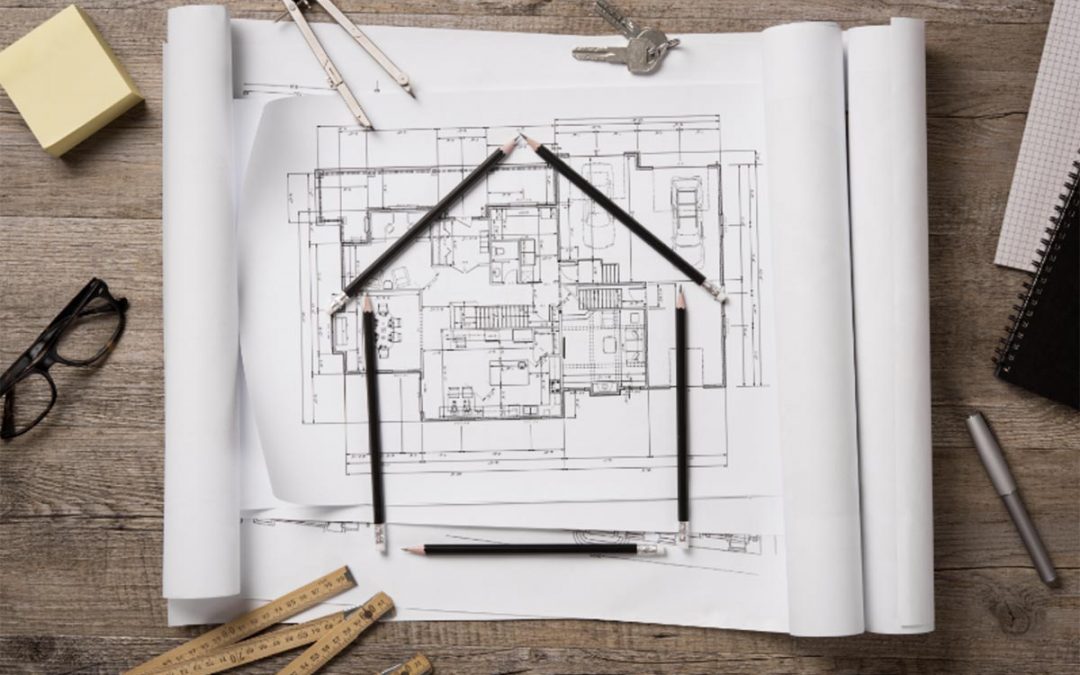If you cannot find your perfect home, build it!
Home buyers tend to dream BIG but end up making countless small compromises.
But why? Why do people prefer buying a less-than-perfect house that is already built rather than building their “perfect” dream house?
We at Volunteer Mortgage believe the answer is simple – most home buyers are afraid of construction loans. They have heard that building a house requires more money out-of-pocket, more paperwork, more proof of income, more closing costs, more work, and more headaches than buying a house.
So let’s simplify construction loans. Let’s create a checklist of what you need to qualify for a residential construction loan.
- Choose a Plot of Land.
After months or years of searching, you finally found the ideal land in the ideal location. Maybe your grandmother willed you a portion of her farmland, and you own the land free and clear. Or perhaps, you stumbled across the perfect greenspace to build your dream home, but you need a loan to purchase the land.
Whether you come to the table with land in hand or with land in sight, you can qualify for a residential construction loan. In fact, you can use the land you own as a down payment, or you can finance the purchase of the land within your construction loan. - Draw Up Architectural Plans.
Once you know where to build, figure out what to build. Choose a colonial two-story house or a one-story brick rancher. Set your house on the top of a hill or amidst trees. Include an attached garage, a first-floor laundry room, or an open floor plan.
Work with an architect to draw up plans that fit your dreams. But remember, fit your design dreams into your budget. Don’t design your dream house and then realize it doesn’t fit into your budget. You will need practical plans before you can apply for your residential construction loan. - Generate a Realistic Budget.
That brings us to your next step. Come up with a realistic budget. If you don’t know what your maximum budget is, call us. Our loan officers can help you determine what you can afford.
Specifically, we will look at the following to determine how much money you can borrow:- Income,
- Debt,
- Debt-to-Income ratio,
- Net worth,
- Credit worthiness, and
- Collateral
- Contract with a Licensed and Insured Builder or General Contractor.
After talking with our loan professionals, you may think you are ready to build your house. BUT WAIT!
You cannot oversee the sub-contractors and project by yourself. A lender will NOT let you – a lay person – be the general contractor for your home build.
So vet out builders. Find one who is licensed, insured, seasoned, reliable, communicative, and knowledgeable. Most importantly, find a builder who has experience with residential construction loans and can keep your build on schedule and within budget. Choose that person and sign a contract. - Obtain Necessary Permits.
Now, get the approvals you need from local municipalities. What? You don’t know what you need? That is why you hired the exceptional builder in the previous step. Your general contractor will know which permits and approvals you need based on the land you have chosen and the house you are building.
Specifically, the builder will help you obtain the following:- Grading or fill approval
- Zoning approval
- A residential building permit
- An electrical permit
- A septic or sewer permit
- These approvals and permits are necessary to obtain a construction loan.
- Outline a Timetable for Construction.
Continue to rely on your builder to complete the next residential construction loan requirement as well. Here, the expert will map out stages of construction:- Site prep
- Foundations
- Framing
- Plumbing, HVAC, and electric
- Insulation and drywall
- Interior finishes and fixtures
- Exterior finishes
- Flooring
- Inspections
- Ultimately, the lender wants to see the amount of time each stage should take.
- Maintain a Good Credit Score.
And while your loan officer and your builder are taking good care of you, continue to take care of yourself. Specifically, maintain a good credit score during the loan application process. Don’t miss credit card payments or take on more debt.
In fact, to qualify for a construction loan, borrowers must generally maintain a credit score of 620 or higher because construction loans are considered riskier than traditional mortgage loans.
Why is that? Well, for one, there is no collateral to be seized if the borrower fails to make payments during the construction phase.
Two, borrowers only pay interest on draws the builder takes during the construction phase. They do not make principal and interest payments until the construction loan converts to a permanent loan upon proof of build completion. Yet, variables such as inclement weather, illness, material shortages, and more can add days, weeks, or months to the construction phase. A lender needs to know that a borrower will continue to make payments even if delays happen. - Have a Down Payment or Equivalent Collateral (if necessary).
Finally, to secure a residential construction loan, some lenders require you to come to the closing table with a significant down payment.
Remember why you have to maintain a good credit score? It’s the same reason certain lenders will only let you borrow a portion of the estimated value of your completed home build – RISK.
Thus, while banks typically ask home buyers to put down 0% – 3% of their home’s value, banks sometimes require home builders to put down 10% – 25% of their home’s anticipated value.
But you have options, especially with the help of your friends at Volunteer Mortgage. If you own your land outright, lenders can apply the land’s value toward your down payment. If you have purchased architectural drawings, lenders can also apply the value of those toward your down payment. Or even better…we at Volunteer Mortgage have some construction loan options that require NO down payment!
Yes, lenders require builder-borrowers to meet many requirements. However, the checklist of residential construction loan requirements above can help you prepare for your future home build.
We at Volunteer Mortgage don’t want you to be afraid of a process that can be explained and mastered. So call us, and we’ll set you up with the perfect construction-to-permanent loan option for you!

